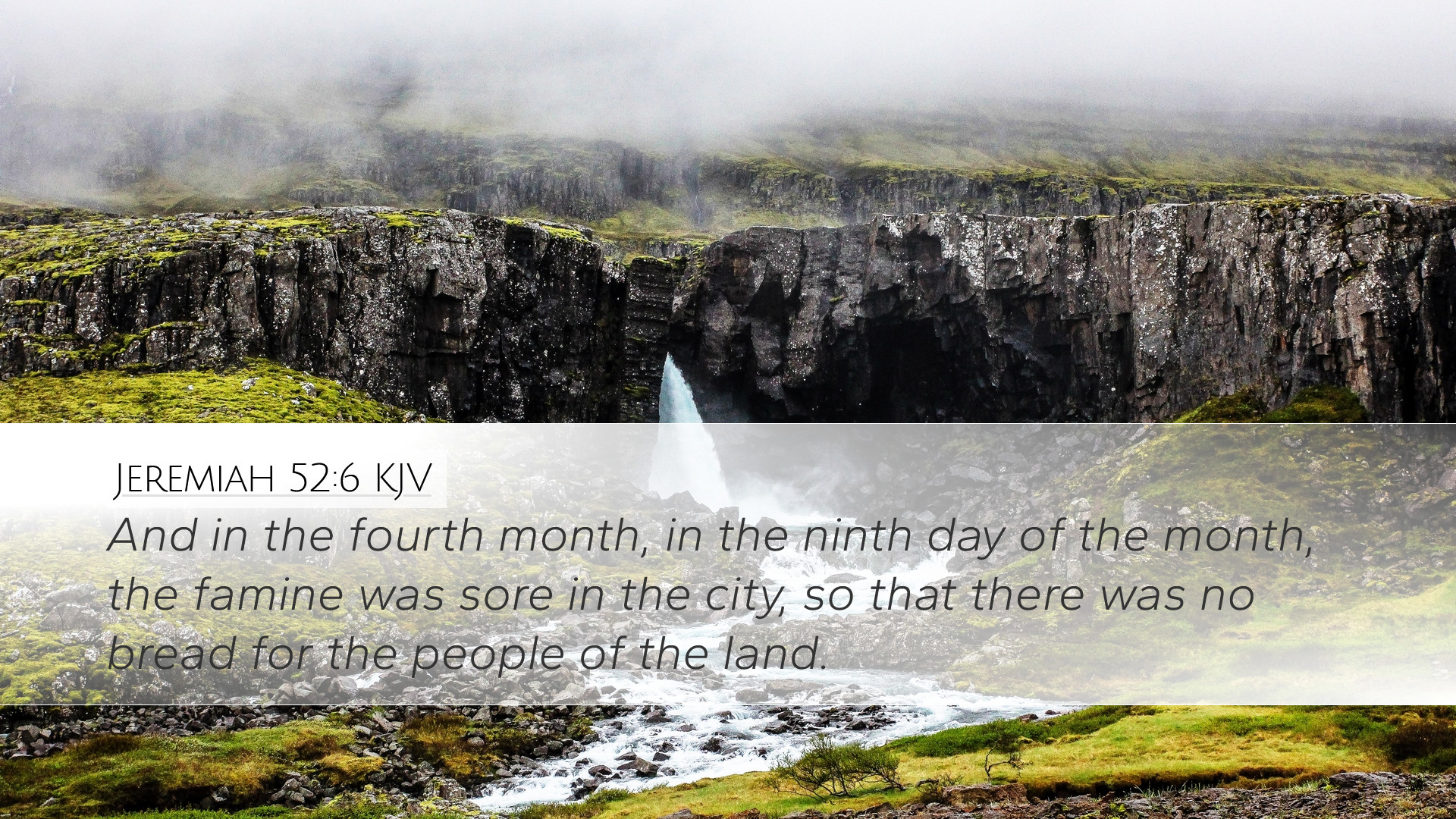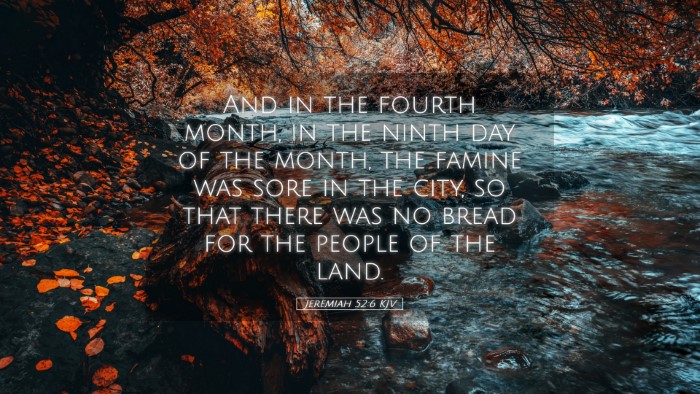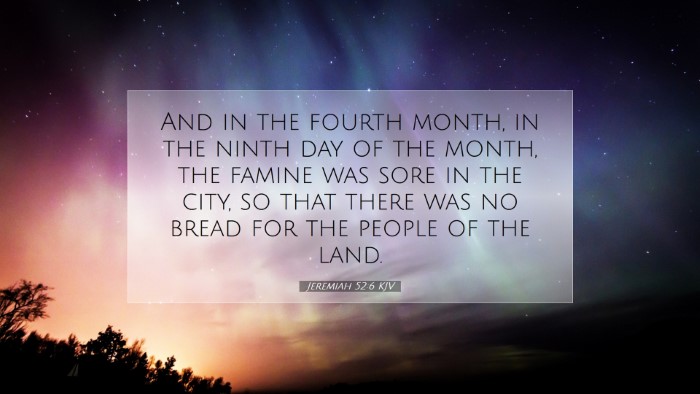Commentary on Jeremiah 52:6
Jeremiah 52:6 states: "In the ninth year of Zedekiah king of Judah, in the tenth month, came Nebuchadnezzar king of Babylon, and all his army against Jerusalem, and they besieged it."
Introduction
This verse marks a critical historical moment in the biblical narrative, portraying the siege of Jerusalem under King Zedekiah. The public domain commentaries offer deep insights into the spiritual, historical, and theological dimensions of this event.
Historical Context
Matthew Henry emphasizes the importance of understanding the broader historical context surrounding the fall of Jerusalem. He notes that this siege was not merely a military endeavor but the culmination of Judah's repeated disobedience to God. This imminent destruction serves as a divine response to their idolatry and unfaithfulness.
Albert Barnes provides a detailed explanation of the timeline leading to this siege. Zedekiah, having been placed on the throne by Nebuchadnezzar, pursued a policy of rebellion, which caused significant tension and ultimately led to the siege. The ninth year marked a turning point for Judah, indicating a time of both political strife and profound spiritual decline.
Theological Implications
Jeremiah 52:6 is rich in theological significance. Adam Clarke points out that the siege represents not only the physical oppression of Jerusalem but also a spiritual desolation. As the Babylonians encircled the city, the spiritual state of the people deteriorated, underscoring the consequences of turning away from God’s covenant.
The implication of divine judgment reveals the seriousness of their state. Henry remarks: "It is a dreadful thing to fall into the hands of a living God, who will not only punish a nation for its sins but will also forsake it in its time of need."
Symbolism and Interpretation
Within this verse lies a profound symbolism. The siege can be seen as a reflection of spiritual conquest. Barnes explains: "As the armies gathered around Jerusalem, so do trials and tribulations surround those who stray from righteousness." This imagery serves as a reminder for Christians of the necessity of vigilance and faithfulness.
Application for Today
For contemporary believers, the siege of Jerusalem and its mention in Jeremiah 52:6 serve as a sobering reminder of the dangers posed by complacency in faith. Henry advises: "Let us take heed lest we become so besieged by our worldly pursuits that we forget our obligation to God." This commentary resonates with pastors and theologians alike, urging them to guide congregations towards deeper introspection and commitment to God.
Moreover, Adam Clarke's insights into the nature of divine discipline lead to important applications about repentance and restoration. The ongoing relevance of this passage encourages believers to seek reconciliation with God, especially when faced with personal or communal crises.
Conclusion
In conclusion, Jeremiah 52:6 serves as a poignant reminder of the consequences of forsaking God. It encapsulates themes of divine judgment, loss, and the call to faithfulness. By examining the insights from Matthew Henry, Albert Barnes, and Adam Clarke, one gains not only a historical understanding but also a profound spiritual application relevant for today's believers and church leaders.
As Zedekiah and the people of Jerusalem faced their dire circumstances, may we learn to heed God’s warnings and remain steadfast in our covenant relationship with Him.


